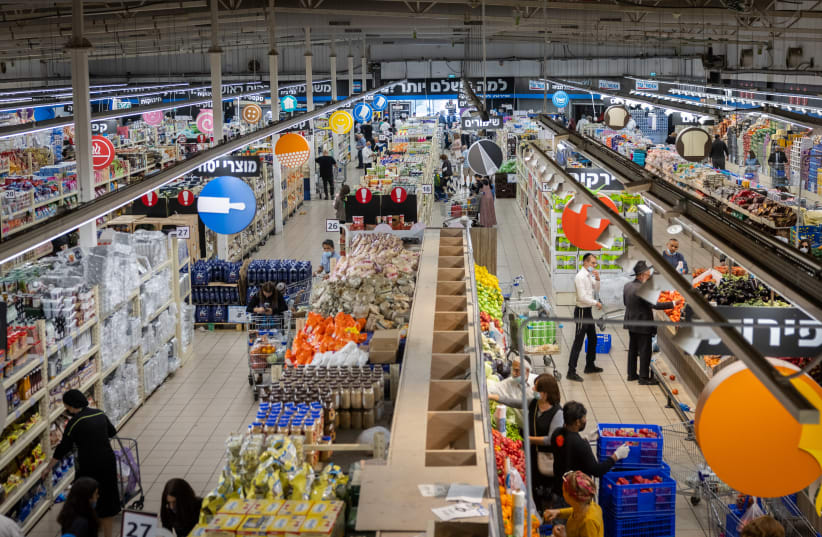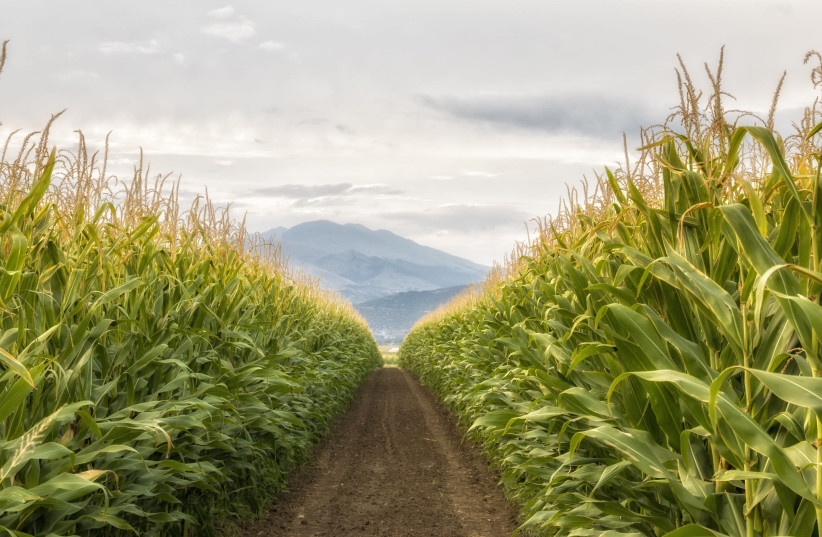Walk into any supermarket in Israel and it’s hard to imagine that the world is facing a food problem. I’m not talking about obesity or malnutrition – both serious and growing issues in themselves… I’m talking about food and our climate.
So what exactly is the problem?
Food today is often grown in a way that’s damaging the climate. According to the World Bank, agriculture currently generates up to 29% of total greenhouse gas emissions. In turn, our changing climate is making it harder to grow food. Agriculture is extremely sensitive to the negative impacts of climate change, especially shifting and extreme weather patterns, which can make crops very vulnerable.
Already, the Food and Agriculture Organization estimates that almost 690 million people go to bed hungry. To put that into perspective, that’s 8.9% of the global population. It’s an increase of nearly 60 million people in the past five years alone.
With a growing population (set to reach almost 10 billion by 2050), depleting resources and increasing water shortages, things are set to get even worse. Our world needs to find ways to grow more produce on less available land, using less water, and in a more climate-friendly way.
The solution is sustainable, regenerative and “climate-smart” agriculture.
This means food that’s grown in a sustainable way without damaging the environment, while at the same time increasing yields and reducing emissions. The ultimate aim is to grow produce while regenerating nature, nourishing the soil, increasing biodiversity, improving water quality and carbon capture, and enhancing crop resilience.
Israel has just marked two occasions that both serve as reminders to appreciate the land that sustains us and to protect it - the shmita year in Israel – the seventh year when the land is supposed to rest and lie fallow, and Tu Bishvat – the new year for trees.
As well as observing these timely reminders of the importance of nature, Israel is at the forefront of a growing revolution, which is not only increasing productivity, but also improving livelihoods for farmers. According to the Israel Innovation Authority’s “Israel’s State of Climate Tech 2021” report, there are currently 212 companies in the country developing climate-smart agriculture systems, and agriculture has been identified as an area of high growth potential.
SeeTree, for example, helps farmers to “make the most of every tree.” The company’s military grade drones provide an aerial view of millions of trees and are able to provide detailed data on every single one. Vehicles, sensors and weather data help to verify the aerial data, and agronomists and scout teams confirm action plans to help farmers optimize their land.
SeeTree’s technology scores tree health, assesses irrigation efficiency, and checks for disease, pests, over-spraying and fertilization, so farmers can then see which of their trees are under-performing, as well as identify their strongest ones. This increases the farm’s efficiency, helps in tracking operations, supports fruit optimization and measures impact.
Another well-known Israeli company in this field (no pun intended) is Netafim. Its byline is “grow more with less” and the company says it helps farmers to “grow higher, better yields every season, with precision irrigation.” This means using the optimal amount of water and nutrients on each plant, delivered straight to the roots, instead of the soil. This enables farmers to grow bigger yields using fewer resources.
The results are pretty amazing – precision irrigation uses 50% less water and reduces greenhouse gas emissions by up to 90% compared to the traditional flood irrigation. It reduces farmer dependence on rainfall, lowers energy consumption by 35%, increases average crop production by up to 50%, and improves fertilizer use by 30%. Netafim says that no matter which crop a farmer wants to grow, or climate patterns, soil type or topography, its technology will help to analyze, control and optimize every crop in real time.
The World Bank Group appears to be convinced. At the end of 2020, its International Finance Corporation (IFC) committed to investing $8 million in SeeTree and a whopping $69 million in Netafim. And the companies are also partnering with farmers outside of Israel to help them grow more crops too. SeeTree, for instance, aims to help farmers in countries in Africa, Indonesia, East Asia, and South Asia to grow more citrus, macadamia nuts, almonds and apple trees.
Netafim is working with growers, companies, governments and aid organizations across the globe to help make agriculture more sustainable. In India, for example, the company partnered with the Ramthal Community Irrigation Project, the biggest drip irrigation project in the world. This covers 11,700 hectares of farmland, improving livelihoods for 7,000 farmers and their families, across 22 villages. As well as providing the drip irrigation infrastructure, Netafim shared best practice techniques with the farmers so they could use less water and fertilizer to grow more.
Another Israeli company disrupting the agriculture world is SupPlant, which is based in Afula. It already provides customers in China, South Africa and a few countries in Europe with crop sensor equipment. However, it’s next generation technology has the potential to help some of the world’s smallest – and poorest - farmers. SupPlant’s sensor-less approach uses its database of 31 crops in 14 countries to provide small-scale farmers with crop predictions.
There are 450 million small-scale, or “smallholder,” farmers across the world – that’s 80% of all farmers. They grow crops on less than two hectares of land (roughly the size of two soccer fields). Most of these smallholder farmers are women and live in the developing world (Africa, Asia and South America), and SupPlant says its database can help these farmers for only $1 a month.
Even this is unaffordable to many farmers, who also may not have a cell phone to keep track of the data, so the company has partnered with the non-profit PlantVillage group. PlantVillage supplies free cell phones to community leaders in Africa who, in turn, provide crop data to smallholder women farmers.
SupPlant’s goal is to help 2 million small-scale farmers in this way, and Netafim, SeeTree and other Israeli companies are also helping smallholder farmers through their own solutions and partnerships. In fact, co-operation on sustainable agriculture is helping to warm ties with countries that don’t have diplomatic ties with Israel, such as Indonesia.
Helping growers around the world to produce better yields using less resources is only part of the solution to climate change and food insecurity. Another part is addressing the one-third of food that is produced across the world which ends up either lost or wasted. Tackling food waste will be essential to meeting the world’s climate goals, and this will be the subject of my next column.
The writer is Middle East Correspondent for India’s WION (World Is One). The author of Tikkun Olam: Israel vs COVID-19, she has helped numerous multinationals report on their contributions to tackling the UN’s Sustainable Development Goals - the views expressed are those of the author.


